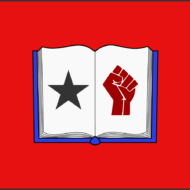The Sovereign Guard of New Vanguardia is the military force of the country. It is a single unified organization, but it has eight top-level corps commands: the Ground Corps (Army), the Naval Corps (Navy), the Air Corps (Air Force), the Logistics Corps, the Missile Corps, the Medical Corps, the Staff Corps, and the Military University.
The core of the New Vanguardian military system is not the active military but the reserves, which are to activate in a time of need to help raise militias and civilian support groups. The training focus is on small group and asymmetrical warfare, aside from “special forces” which are (unlike the typical usage) both the main frontline combat arm as well as being specialist elements.
Leadership
The formal head of the Sovereign Guard is the State Assembly. Unlike in many countries, the President of the State Assembly is not the commander-in-chief or any equivalent. Instead, the Sovereign Guard is oath-bound to defend the institution of the Assembly rather than to obey one person.
Even below the level of the State Assembly, there is no single head of the Sovereign Guard. Formally, the Sovereign Guard is the responsibility of the State Commissioner for the Military, but this commissioner does not have operational control. Each corps of the Sovereign Guard is headed by a Leadership Committee, which is a self-regenerating body (i.e., when one member leaves, the committee itself can appoint their replacement) directly subject to the Military Commission. The Leadership Committee selects one of their number to be the Corps Commandant, who is the formal head and de facto representative of their corps.
The commandants of all the corps together form the Military Coordination Council which has no separate authority; it doesn’t act as a “general staff” in normal times. The MCC mainly serves as a forum for cooperation, though it can be empowered to form a Special Command in times of war which would operate as a dedicated fighting force. The MCC is considered to have two officers. The first is the State Commissioner for the Military, who may chair and call meetings of the MCC. The second is the Soldiers’ Representative, who is elected by the entire military.
The Soldiers’ Representative has no formal power, but is considered the de facto enlisted head of the military. The candidates for this post are the commandants of the military corps, and they are voted on by the entirety of the Sovereign Guard, using their cohorts as voting districts. The Soldiers’ Representative can therefore claim to represent the wishes of the rank-and-file. However, it is understood that this function is consultative, and it grants no extra powers or authority on its own.

